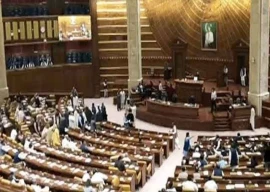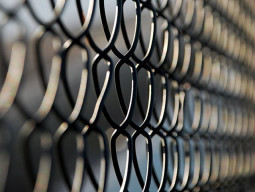
Load-shedding will not go down unless consumers start becoming more prudent in their use of electricity, the head of the Pakistan Electric Power Company (PEPCO) said on Thursday, as citizens complained of increased power outages in the first few days of Ramazan.
The water and power minister claimed before Ramazan that there would be no load-shedding during sehar and iftar, but power outages were reported during these times from the first day of the holy month.
Lahore Electricity Supply Company (LESCO) officials said that this was forced load-shedding imposed by the Regional Control Centre because grids were overloaded. The RCC shuts the grids to protect against tripping. Lesco has never scheduled load shedding during Seher and Iftar timings, said a public relations officer for the company.
(Read: Water works: Hydropower projects of 37,000MW in pipeline)
Pepco Director General Ijaz Rafique Quraishi said that the major demand for electricity was for air conditioners and as long as citizens did not reduce consumption, load-shedding would continue.
“We have to shut the grid stations when the load is too high to protect them from damage. This results in load-shedding, especially in industrial areas. Until citizens take on the responsibility of decreasing usage at their ends, the situation will continue,” he said.
Lesco officials said there was a shortfall of around 1,000 MW and that there was six hours of load-shedding in urban areas and 11 hours in rural areas of the district. But in some parts of the city, there were power outages of 10 hours a day, and of up to 15 hours a day in the outskirts. Most of the city’s markets were deprived of electricity from 8 pm to 10 pm, the time for taraweeh prayers.
Apart from the increased hours, there were complaints that Lesco was not following a schedule of outages.
Usman Ahmad, a resident of Sanda, said that the lights had gone out each sehar for at least 30 minutes so far in Ramazan. He said that the outage from 8pm to 10pm made it difficult to offer Isha and taraweeh prayers. “Although many mosques are equipped with a UPS, it only works for an hour or so,” he said.
Another problem, he said, was that “we don’t know when the load-shedding will hit us.” He said the lights were also going out for longer. Before Ramazan, they went for an hour, but now each outage lasted between 90 minutes and two hours, he said.
Published in The Express Tribune, August 5th, 2011.
COMMENTS (6)
Comments are moderated and generally will be posted if they are on-topic and not abusive.
For more information, please see our Comments FAQ

1736942026-0/fizza-(33)1736942026-0-165x106.webp)


1736941045-0/fizza-(32)1736941045-0-165x106.webp)






1732012115-0/Untitled-design-(14)1732012115-0-270x192.webp)
1736844405-0/Express-Tribune-(2)1736844405-0-270x192.webp)










No doubt "a KW saved is equal to a KW produced " even then load shedding cannot be eliminated by prudent use of electricity by the consumers, however it can be reduced to some extent. If it is purely due to airconditioners use, then there should be no load shedding in winter. The wide gap between production and demand can only be filled if more MW are added to system. In winter there is no water flow in the dams and in summer load shedding increases due to mismanagement. No furnace oil and gas is provided to Generating power plants on one or the other excuse, which needs sincere attention. Thar coal reservoir and hydro power potential available in Pakistan need due attention to eliminate load shedding. All resources are given by the Allah to pakistan except sincere and competent leadership. If competent persons are posted as decision maker, all the problems will start to vanish. There is considerable interference of politicians almost every where to harm the Merit, which needs to be noticed if we are sincere with our country...
PEPCO wants to that people close industries,AC and everything......AND STOP using electricity..............
Its almost impossible to steal electricity without the involvement of the concerned electricity authorities. The power authorities should therefore set their own house in order to reduce power theft.
"consumers start becoming more prudent in their use of electricity"? If by "consumers" you're referring to all those in the upper echelons of the government and society in general who have no idea of energy conservation (after all why be concerned with the limited supply of electricity when you can get a generator installed to power all those splits running in your house during the outage) as well then you'd have a valid point.
However, as it currently is, I fail to see the point in punishing the poor for their lack of "prudent" use of electricity when most can barely afford to buy an AC while the rich remain unaffected. Load-shedding can only be effective as a punishment mechanism if it targets those consumers that have a higher level of consumption. If it fails in this regard then it will only punish the poor unnecessarily.
PEPCO is responsible for co-ordinating the supply & demand of Generating & Distribution Companies. All the generation companies of Pakistan have generation capacity of almost 21000 MW while the maximum demand of country never exceeds 18000 MW. It appears as policy that once consumer demand rises above 13000MW, PEPCO can do nothing with Generating companies to be able to give the nation 90% of the install capacity, i.e 19000 MW. In a monoply situation it is PEPCO who should make sure it gets 90% of installed generation from the Generating Companies. If PEPCO can not fullfil this responsiblity than it is time for Generating companies to sell their goods direct to Distribution companies.
Air-conditioners are used during the Summers. What is this DG's reason for load-shedding during the Winter. PEPCO wants public to stop using electricity. That way there will be no need for load shedding. PEPCO and its associated organizations are pathetic and despicable.